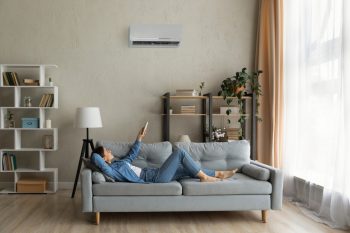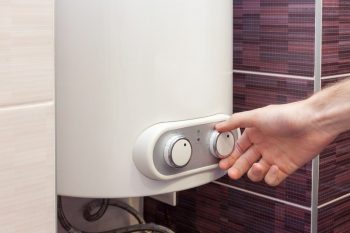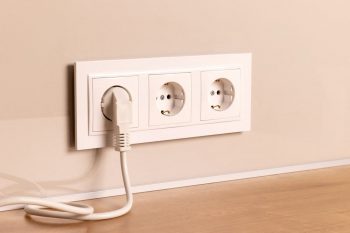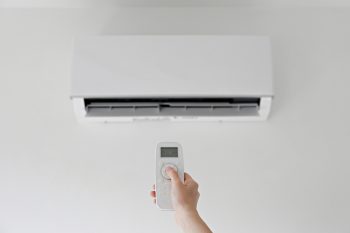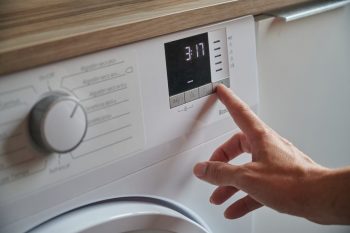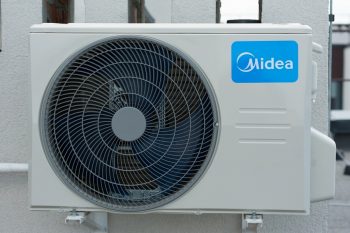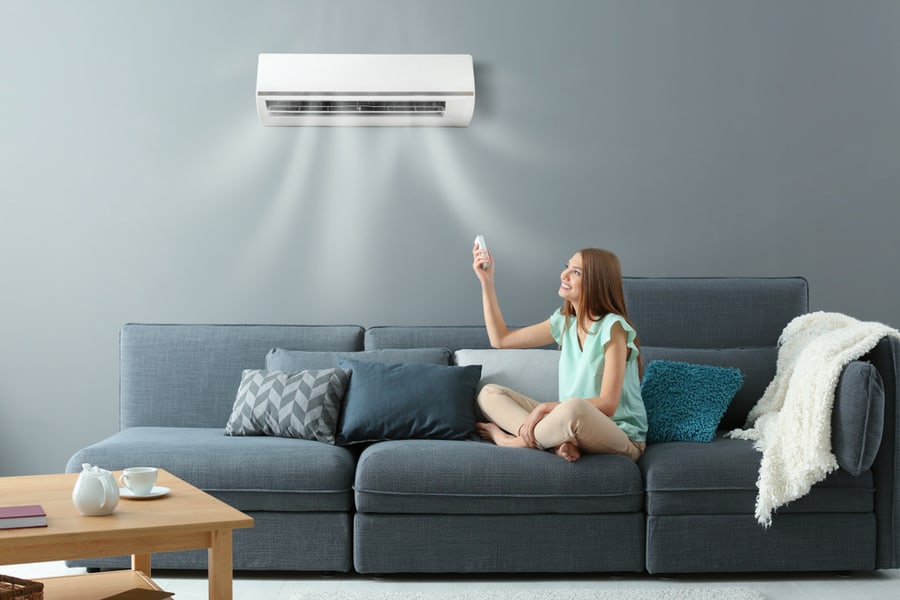
With today’s rapidly changing environmental landscape, air conditioners are no longer seen as a luxury but have become necessary for all households.
They have become an important part of the modern lifestyle and help us bring relief from the cold and humid outside environment by providing comfort in our homes during the long summer season.
Since air conditioners are complex machines, we must maintain them to reap their benefits for a long period.
As an air conditioner is a very expensive purchase, it is not an investment you can make now and then. A problem can be presented as loud noise, low performance, decreased efficiency, or a shaky vibrating unit.
Are you also facing the problem of a shaking air conditioner? If yes, then you are at the right place. Let’s discuss the key reasons behind a violently shaking air conditioner!
If your air conditioner is shaking, it is important to identify the reason behind this problem and correct it on time.
The following are the main reasons behind a shaking air conditioner which need to be addressed:
- Dirt and debris are stuck inside the unit.
- The fan motor is faulty.
- Fan Blades are loose.
- Incorrect size of your air conditioner.
- Oddly designed air ducts.
- Unbalanced fan motor or blades.
This article will provide 6 basic reasons behind a shaky air conditioner and how to correct it.
6 Reasons Why Your Air Conditioner Is Shaking
Among many reasons why dealing with an air conditioner might frustrate its owner is its shaking. Shaking of an air conditioner can occur due to several reasons.
Below listed are a few of them:
1. Dirt and Debris Stuck Inside the Unit
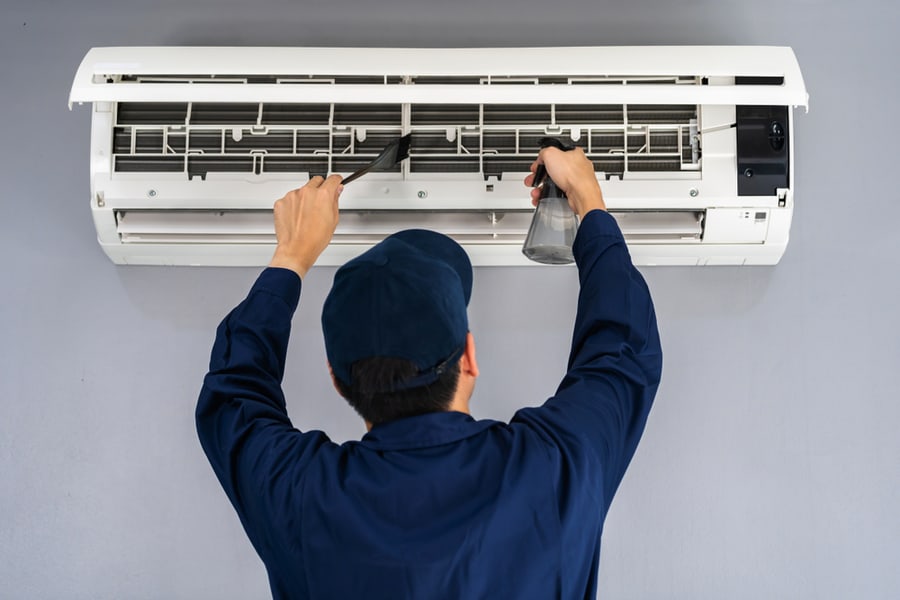
If your air conditioner has accumulated dust and debris inside the unit and is left uncleaned for a while, the inner components will have to work harder to bring the cooling effect to your room.
As the dust and debris damage the internal components and produce friction while performing everyday work, the unit shakes violently and produces unnecessary sounds that may disturb you.
Solution
You will see a clear difference in the vibratory sounds once you have cleaned your air conditioner.
You can perform an effective cleaning of your air conditioning unit by considering the following steps:
- Cleaning Filter – As the filter of air conditioner must filter out dirt and debris from the air, it is the part most prone to getting accumulated dust. You can clean the filters by using a soft-bristled brush or a toothbrush. Clean it at least once a year and more often if you have furry pets at home.
- Replacing the Filter – Sometimes, if your filter is too dirty and damaged, it is not enough to clean the filters only. They might need replacement as well. It is better to replace them on time to avoid further problems.
- Performing Regular Dusting – Make sure not to let dirt sit on the air conditioner for too long. Clear it regularly around the unit to keep it from building up and damaging its components.
- Light Vacuuming – You can also perform light vacuuming on the inside of the unit after unplugging it. Make sure to put the vacuum on its lowest setting to save the air conditioner from any damage due to high pressure.
To reduce the vibrations better, ensure the cleaning is also better and more efficient. By cleaning it, you are saving your investment in the longer term.
As the air conditioner is clean, it will be less prone to damage, automatically increasing its life.
2. A Faulty Fan Motor
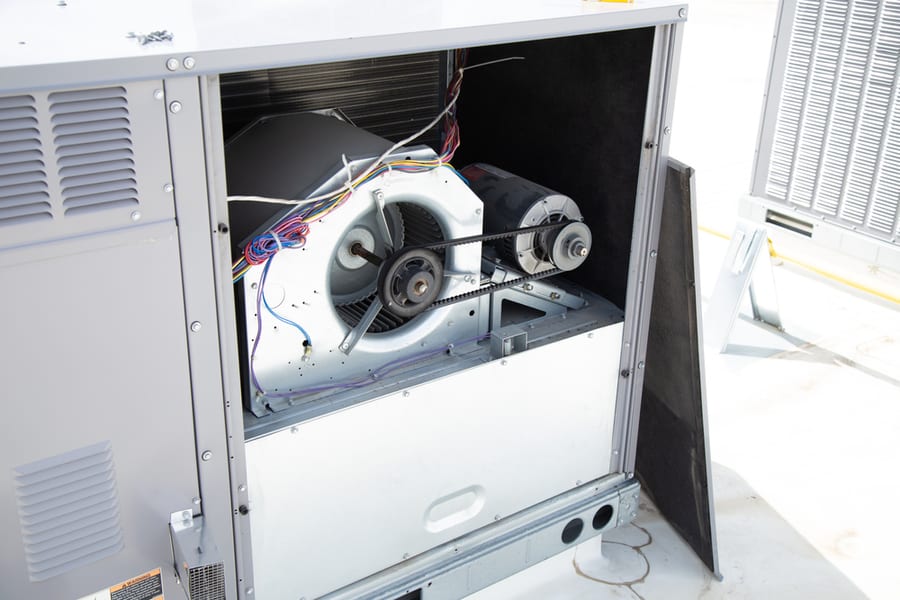
If your air conditioner is facing a problem with its fan motor, vibratory motion can be the resulting issue.
- Imbalanced Rotor – If the motor’s rotor is imbalanced, it will produce violent vibrations. The motor’s imbalance occurs due to the motor’s damaged internal components.
- Worn Out Bearings – The bearings in the motor’s shaft help support it and reduce friction between its moving parts. If the bearings are loose or worn out, they can produce huge vibratory motions.
- Problems with Alignment – If the motor’s shaft is misaligned with the compressor or fan of the air conditioner, it will cause the unit to vibrate. This usually occurs due to loose motor mounts or a damaged motor.
- Electrical Issues – Electrical issues with the air conditioner’s motor will also make it shake. This includes incorrect voltage supply or wear and tear with the wires.
Solution
To cure the shaking due to a faulty motor, you can get it repaired by a professional or replace it with a new one if the damage seems irreparable.
You can also repair the motor independently if you know about working with electrical appliances.
3. Fan Blades Are Loose
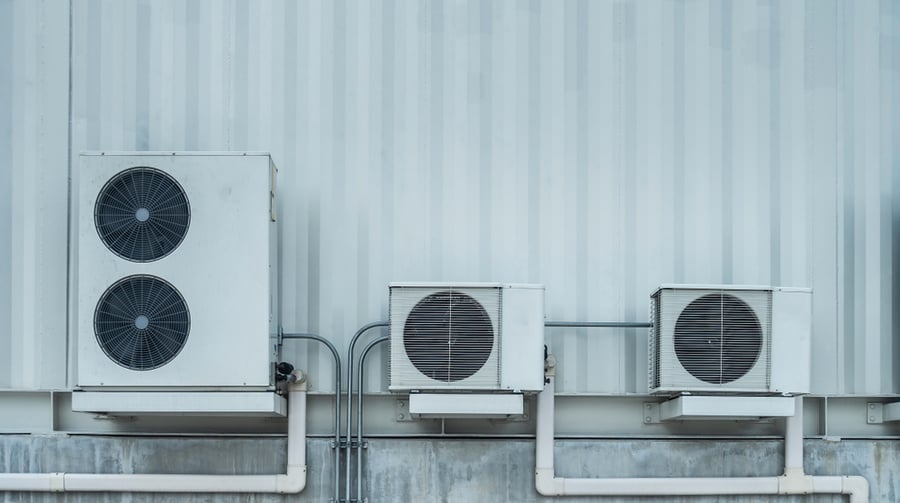
If the fan blades of the air conditioner are loose, they can become imbalanced and hence cause a shaking movement whenever turned on.
The fans of the air conditioner are one of its important components which help in its efficient working. If the fan blades hang loose, they will make a wobbly and uneven movement whenever spinning.
Since this movement will produce a force, it will be transferred to the air conditioning unit, and hence it will also start shaking improperly.
If the fan blades are too loose, the problem can get even worse. As they have moved out of alignment, they will start hitting other parts of the air conditioner, causing additional damage and increasing the chance of the unit’s malfunction.
Solution
You will need a screwdriver to fix the fan blades in their place. You can open the unit and tighten the bolts to make the fan blades fixed in their position.
In case the fixing holes of the fan have gone wide and tightening the screws is no longer effective, you can use metal or rubber plates to overcome this problem.
4. Incorrect Size of Your Air Conditioner
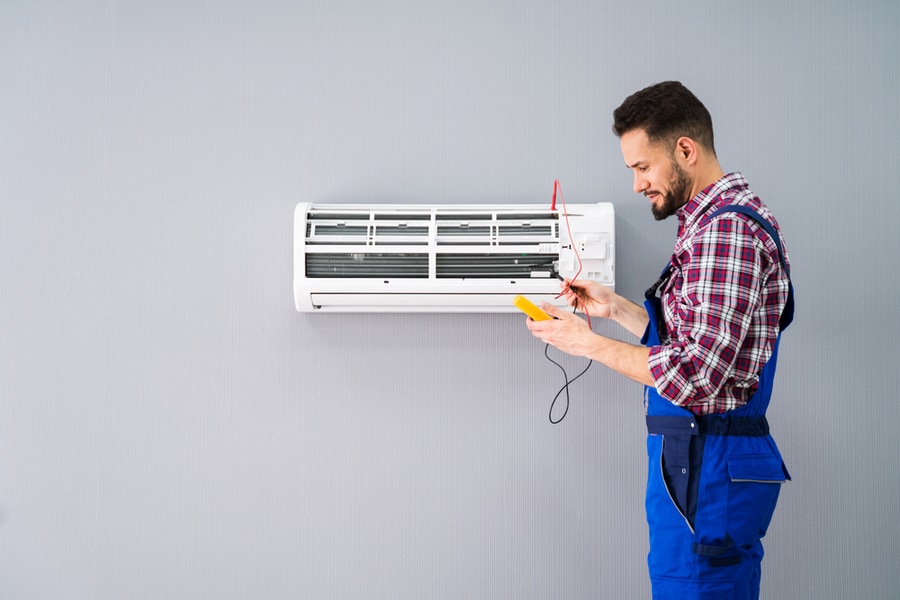
If your air conditioner is not properly sized for your home, it may also cause violent vibrations. There can be many reasons explaining this.
At first, the air conditioner might not be sized properly when installed at your place.
Another case can be the right size according to the area of your place, but if it was already fitted in the room, it might not be compatible with the indoor environment that you later designed for your room.
In either of these cases, the incorrect sizing will push your unit to work much harder than it was designed to keep your place cool.
This additional work will cost your air conditioner’s health and cause many mechanical and electrical issues with the unit. This will eventually contribute to higher vibrations and more disturbance in the room.
Solution
The solution to this problem is to get the correctly sized air conditioner for your place.
The first caution is to always buy a unit correctly sized according to your living space and, secondly, compatible with the comfort level you will create in your area.
Suppose you cannot afford a correctly sized air conditioner and have already invested in the wrong size. In that case, you can reduce its pressure by using additional cooling options.
This includes devices such as heat pumps or ceiling fans. This will help improve the air circulation of the space, lower load on the air conditioner, and hence help in better health of your air conditioner with no vibratory issues.
5. Oddly Designed Air Ducts
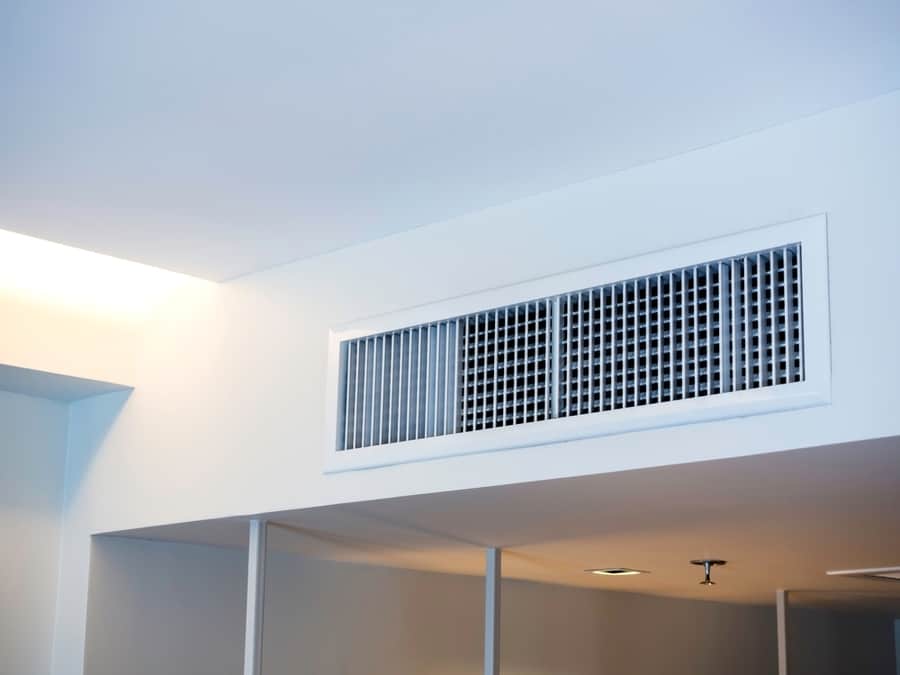
If the air ducts are not the proper size for the air conditioner or are poorly installed, they can cause the unit to shake.
There can be several problems caused by incorrectly installed air ducts in the air conditioner; here are a few:
- Restriction of Airflow – If the air ducts are not designed properly, they may develop several bends and turns, obstructing the air passing through them. While the air conditioner will have to force air to pass through these ducts, it will lead to an imbalance in the system, often leading to a shaking unit.
- Incorrect Installation – If the air ducts are not secured together correctly and contain loose connections, air might leak out from the nooks and crannies, making the system work more and hence develop vibrations.
- Incorrect Sizing – An incorrect size of the air ducts can also be the culprit behind a shaky air conditioner. If the ducts are too small, the system will have to overwork to push the air through small ducts. In the case of larger ducts, airflow will be reduced, making the system inefficient.
- Poor Insulation – If the air ducts are not insulated properly, they cannot remove the warm air outside and bring cool air to the fans. This is due to the temperature exchange between the environment and the air inside the air ducts. As the system will have to work harder to maintain the right amount of temperature inside, it will cause the air conditioner to shake.
Solution
Consider reinstalling correctly sized air ducts to avoid the problem of a shaking air conditioner.
You must check the size of the air conditioner, read the manufacturer’s guide, prevent cuts and connections as much as possible, and also consider the services of a certified technician if you feel inadequate for the task.
6. Unbalanced Fan Motor
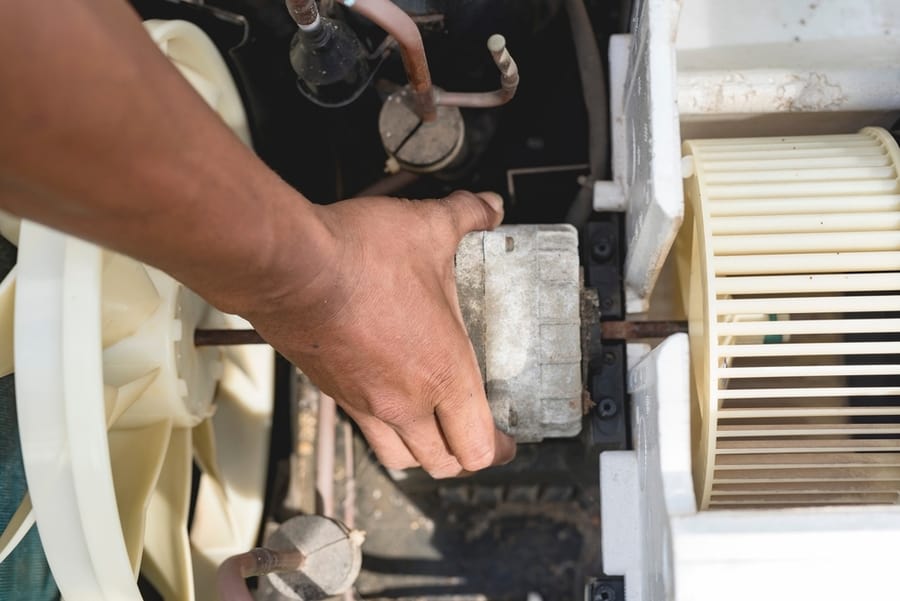
The fan motor can get unbalanced due to several reasons.
The fan blades might develop dust and debris, their blades might have varying sizes, they might develop cuts and bends, or the motor might have suffered wear and tear.
As the fan motor is working imbalanced, it will cause it to vibrate. This vibration is transferred to the other parts of the air conditioner, causing it to shake.
Solution
You can thoroughly clean the fan blades, tighten up their screws, adjust them, straighten them to remove any bends, and adjust them with the motor to avoid vibration and shaking.
If the damage to the blades is irreversible, you can replace them with a new one to prevent excess shaking.
Ensure the fan blade you replace is the same size as all other blades. Incorrect size of the blades can also lead to imbalance and hence cause the unit to shake.
Conclusion
Air conditioners have become one of the essential appliances to have, especially during hot summer days. Understanding and curing their problems on time is important to elongate their useful life.
A shaking air conditioner represents some basic problems with the unit. There might be dust and debris stuck inside the air conditioner; the fan motor might have gone faulty and require its replacement.
The incorrect size of the air conditioner or its oddly designed air ducts can also be the culprit behind a shaky unit.
In case the fan blades are loose or imbalanced with the fan motor, this can also cause the air conditioner to shake.
Frequently Asked Questions
How Can I Stop My AC Vents From Vibrating?
If your air conditioner’s vents are shaking or vibrating, you can consider the following measures to stop them:
- Clean the vents thoroughly.
- Open any closed dampers or vents.
- Clear any object blocking the way of vents, such as furniture or other foreign objects.
Is It Normal for My Air Conditioner To Vibrate?
Since all air conditioners contain machinery and moving components that work together to bring about the cooling function, they normally vibrate.
However, if your unit is shaking or giving violent vibratory motion, that might indicate a problem with the system that needs to be checked and corrected.
Why Does My Air Conditioner Make a Loud Rattling Sound?
A noisy air conditioner is a representation of some problem with its system. Identifying the type of sound is greatly helpful in investigating the area of the problem and curing it on time.
Below are the four most common reasons behind a rattling air conditioner:
- The screws of the air conditioner might be loose.
- The fan blades might be misaligned with the central motor.
- The fan motor might have gone faulty.
- The air conditioner’s outdoor unit might have developed any obstruction or accumulated dust and debris.


